
Gardening can seem like a never-ending battle, especially in places with dry shade and extreme cold. And did I mention the hungry deer? My family has a cabin in the Northwoods of Wisconsin, on the border of USDA Zones 3 and 4. The scenery is beautiful, but a gardener faces significant challenges. After years of attempting to grow hosta there, I decided to look for perennials that might appeal less to deer while thriving in the dry shade. The results haven't been perfect, but it's amazing what can be done with a little research and experimenting.
FACING DRY SHADE
Dry shade can feel like a gardener's nightmare. After all, you don't have enough sunlight for plentiful blooms, and the dry soil makes it hard for plants to grow. Instead of leaving the ground barren, here are some perennials that can give you success. Groundcovers are typically the easiest perennials to grow in these spots, but you can expand your palette if the site offers some moisture and sunlight.
Spotted deadnettle (Lamium maculatum; Zones 3-9) is a beautiful ground cover that offers eye-catching foliage and colorful, beefriendly blooms, even in full shade, and the deer avoid it. You can choose among cultivars with green, silver or bicolor leaves that form a dense carpet six to nine inches tall. You'll also find a choice of flower colors, including purple, pink and white.
A favorite deadnettle of mine is 'Purple Dragon'. This vigorous cultivar features silver foliage and deep purple blooms that brighten a shady corner. Other good varieties include 'Chequers', with pink-purple flowers and silverstriped leaves, and 'Red Nancy', noted for its red stems and taller-stemmed flowers.
Spotted deadnettles can overrun weaker perennials, but their shallow roots make them easy to edit. They grow in moist to dry soil and require good drainage.
Diese Geschichte stammt aus der March - April 2024-Ausgabe von Horticulture.
Starten Sie Ihre 7-tägige kostenlose Testversion von Magzter GOLD, um auf Tausende kuratierte Premium-Storys sowie über 8.000 Zeitschriften und Zeitungen zuzugreifen.
Bereits Abonnent ? Anmelden
Diese Geschichte stammt aus der March - April 2024-Ausgabe von Horticulture.
Starten Sie Ihre 7-tägige kostenlose Testversion von Magzter GOLD, um auf Tausende kuratierte Premium-Storys sowie über 8.000 Zeitschriften und Zeitungen zuzugreifen.
Bereits Abonnent? Anmelden

Pot It Up
Shake up the containergarden with theseNorth America –native perennials

THE GARDEN PATH TO PERDITION
I WAS CRUISING RIGHT ALONG, feeling okay about myself, when I came across a list of the Seven Deadly Sins.
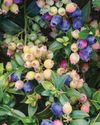
A Productive PATIO
Tiny fruit, vegetable and herb plants help gardeners maximize any sort of growing space
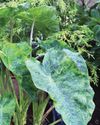
TROPICAL FUSION
A FUSS-FREE APPROACH TO USING BOLD TROPICAL PLANTS IN ANY TEMPERATE GARDEN

WINTER READING
Pass the time with any of these inspiring books
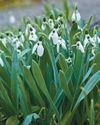
SENSING A PATTERN
Greg Coppa reflects on an odd weather year and what continued warming may mean for his Rhode Island garden
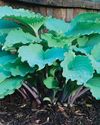
TOP-PRIZE PERENNIALS
A foliage masterpiece for shade and a late bloomer for sun

MARK WESSEL
What's new for fruit and vegetable gardeners?
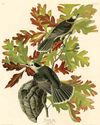
KINGS OF THE NORTHERN FORESTS
A look at the trees, shrubs and perennial plants that bolster life in Ecoregion 5

PROJECT FEEDERWATCH
Gardeners can help scientists know just where the birds are in winter